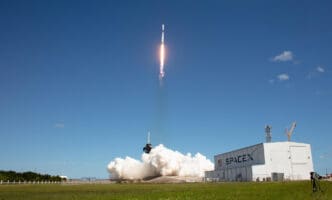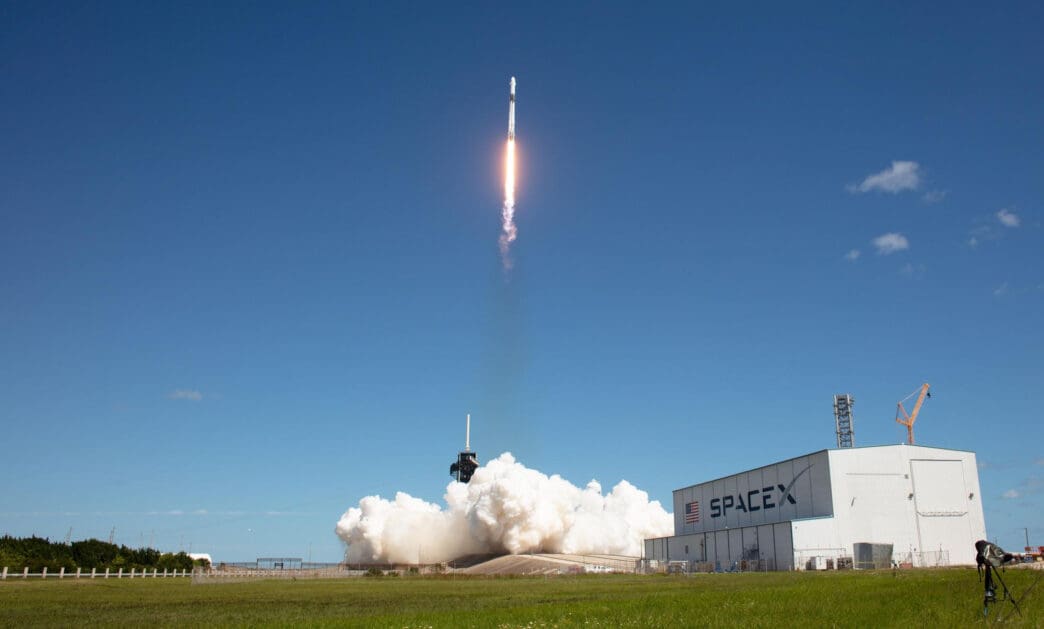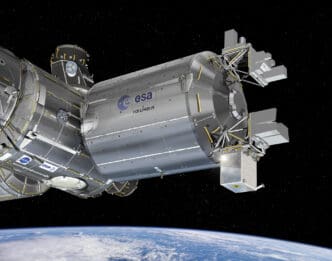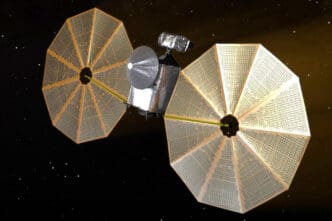Executive Summary
- The space exploration sector is rapidly transforming into a commercial frontier, shifting from government-exclusive to private sector dominance, driven by innovations like reusable rocket technology and reduced launch costs.
- This burgeoning commercial space economy encompasses a wide range of activities, from a thriving Low-Earth Orbit (LEO) market for satellite constellations and commercial space stations to ambitious lunar and deep space ventures like resource extraction and potential Mars colonization.
- Despite promising significant terrestrial benefits such as technological spin-offs and economic growth, the commercial space frontier faces substantial challenges including space debris, evolving regulatory landscapes, and ethical considerations.
The Story So Far
- The burgeoning commercial space sector is driven by a significant shift from government-led initiatives to private sector dominance, where companies like SpaceX and Blue Origin are dramatically reducing launch costs and increasing access to space through technological innovations. This transition is fueled by the immense economic potential of developing a “New Space Economy” encompassing activities from low-Earth orbit satellite constellations and in-orbit manufacturing to ambitious ventures for lunar resource extraction and asteroid mining, promising to unlock new industries and foster global economic growth.
Why This Matters
- The burgeoning commercial space sector is fundamentally transforming global economics and technology by creating entirely new industries, from satellite-driven global internet and in-orbit manufacturing to future lunar resource extraction and asteroid mining, which are expected to drive significant economic growth and technological spin-offs on Earth. This rapid expansion, however, also necessitates urgent attention to critical challenges such as managing space debris, establishing clear international regulatory frameworks for property and liability, and addressing complex ethical considerations to ensure humanity’s sustainable and responsible presence beyond Earth.
Who Thinks What?
- Private companies like SpaceX, Blue Origin, and Rocket Lab are leading the “New Space Race” by dramatically reducing launch costs and increasing access to space, driving innovation in satellite deployment, space tourism, in-orbit manufacturing, and ambitious lunar and deep space ventures.
- Government programs, such as NASA’s Artemis, are actively partnering with commercial companies to develop lunar infrastructure and resource extraction technologies, viewing this collaboration as crucial for a sustained human presence and the establishment of a nascent lunar economy.
- The commercial space frontier, while promising immense economic value and terrestrial benefits, faces significant challenges including the growing issue of space debris, substantial capital requirements, inherent operational risks, and the need for evolving regulatory frameworks and ethical considerations regarding resource extraction and planetary protection.
The burgeoning space exploration sector is rapidly transforming into a significant commercial frontier, driven by a confluence of private enterprise innovation, governmental support, and technological advancements. This shift, primarily occurring in the present and accelerating into the near future, encompasses activities ranging from low-Earth orbit (LEO) satellite deployment to ambitious lunar missions and asteroid mining prospects, ultimately promising to unlock new industries, foster economic growth, and propel humanity toward a multi-planetary future.
The New Space Race: Private Sector Dominance
Historically, space exploration was an exclusive domain of national governments, characterized by monumental budgets and geopolitical competition. Today, a new era has dawned, often dubbed the “New Space Race,” where agile private companies are taking the lead.
Companies like SpaceX, Blue Origin, and Rocket Lab are not merely participants; they are disruptors, dramatically reducing launch costs and increasing access to space. Their innovations in reusable rocket technology and efficient manufacturing have made orbital access more affordable and frequent than ever before.
This private sector dominance extends beyond launch services to a wide array of commercial offerings. These include satellite deployment for various purposes, the nascent but growing market of space tourism, and the development of in-orbit infrastructure.
Low-Earth Orbit (LEO) Economy
Low-Earth orbit, extending up to 1,200 miles above the Earth’s surface, has become the initial proving ground for the commercial space economy. It is a bustling zone of activity that is already generating substantial economic value.
Satellite Constellations
One of the most impactful developments in LEO is the proliferation of large satellite constellations. Projects such as SpaceX’s Starlink and OneWeb are deploying thousands of small satellites to provide global broadband internet access, particularly to underserved regions.
Beyond internet, LEO satellites are crucial for Earth observation, providing critical data for climate monitoring, urban planning, and agricultural efficiency. They also power global positioning systems (GPS), which are indispensable for modern navigation and logistics.
In-Orbit Manufacturing and Servicing
The microgravity environment of space offers unique opportunities for manufacturing materials with properties impossible to achieve on Earth. Companies are exploring the production of specialized alloys, fiber optics, and pharmaceuticals in orbit.
Furthermore, the concept of in-orbit servicing is gaining traction, involving the repair, refueling, and upgrading of existing satellites. This capability could extend the lifespan of valuable assets and significantly reduce the cost of operating space infrastructure, alongside efforts to address space debris.
Commercial Space Stations
With the International Space Station (ISS) nearing the end of its operational life, commercial entities are stepping forward to build and operate private space stations. Axiom Space, for instance, is developing modules for the ISS that will eventually detach to form a standalone commercial outpost.
These commercial stations will host scientific research, manufacturing facilities, and even space tourists, creating a new paradigm for human presence in LEO. They represent a significant shift towards a more accessible and commercially driven orbital habitat.
Lunar and Deep Space Ventures
The commercial gaze is extending beyond LEO, with ambitious plans for the Moon and even deeper into our solar system. These ventures promise to unlock resources and expand humanity’s reach.
Moon Economy
The Moon is increasingly viewed as a crucial stepping stone for future space endeavors and a source of valuable resources. Water ice, trapped in permanently shadowed craters at the lunar poles, is particularly significant.
This water ice can be processed into rocket fuel (hydrogen and oxygen), making the Moon a potential refueling station for missions to Mars and beyond. Additionally, the Moon holds rare earth elements and helium-3, a potential clean energy source, though its extraction remains a long-term goal.
Government programs like NASA’s Artemis are actively partnering with commercial companies to develop lunar landers, habitats, and resource extraction technologies, laying the groundwork for a sustained human presence and a nascent lunar economy.
Asteroid Mining
Deeper into space, asteroids represent a potentially immense source of valuable minerals. The asteroid belt contains vast quantities of platinum group metals, nickel, iron, and water, which could be worth trillions of dollars.
While still largely in the conceptual and research phase, asteroid mining could one day provide essential materials for in-space manufacturing and construction, reducing the need to launch everything from Earth. The technological and logistical challenges are significant, but the long-term economic potential is undeniable.
Mars Colonization
The ultimate frontier for many commercial space companies is the colonization of Mars. While a highly ambitious long-term vision, the pursuit of this goal drives significant innovation in propulsion, life support systems, and closed-loop ecosystems.
Establishing a self-sustaining human presence on Mars would require an entirely new interplanetary economy, involving the development of extensive infrastructure, resource utilization, and advanced manufacturing capabilities beyond Earth’s current reach.
Terrestrial Spin-offs and Benefits
The investments and innovations in space exploration are not confined to the cosmos; they yield substantial benefits back on Earth. These terrestrial spin-offs impact various industries and improve daily life.
Advancements in rocket science and satellite technology drive breakthroughs in materials science, computing, artificial intelligence, and robotics. These technologies find applications in fields as diverse as medical imaging, weather forecasting, and autonomous vehicles.
The space industry also acts as a powerful economic engine, creating high-tech jobs and stimulating growth in manufacturing, engineering, and research sectors. It inspires new generations to pursue careers in STEM fields, fostering a skilled workforce.
Furthermore, Earth observation satellites provide invaluable data for environmental monitoring, helping us understand and combat climate change, track natural disasters, and manage global resources more effectively.
Challenges and Regulatory Landscape
Despite the immense promise, the commercial space frontier is not without its significant challenges. These include substantial capital requirements and the inherent risks associated with space operations.
One pressing concern is the growing issue of space debris, which poses a threat to operational satellites and future missions. Sustainable practices and debris removal technologies are becoming critical.
The regulatory landscape is also evolving, grappling with questions of property rights in space, international treaties governing celestial bodies, and liability for space accidents. Establishing clear and comprehensive legal frameworks is essential for the orderly development of the space economy.
Ethical considerations surrounding resource extraction, planetary protection, and the potential for commercial exploitation of space also require careful deliberation as humanity expands its reach beyond Earth.
The commercialization of space exploration represents a profound shift in human endeavor, transforming what was once a government-led scientific pursuit into a dynamic economic sector. From enabling global connectivity in LEO to unlocking the vast resources of the Moon and asteroids, this burgeoning frontier is driving unprecedented innovation, creating new markets, and promising a future of extraordinary opportunities and complex challenges that will redefine our relationship with the cosmos.







